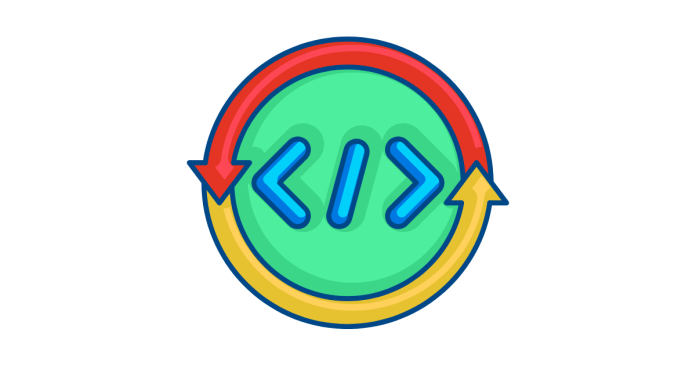Recursion and iteration are two fundamental concepts in programming used to solve problems by repeating a process. While they achieve similar outcomes, their approaches and implementations differ significantly.
Definition
- Recursion:
Recursion is a process where a function calls itself directly or indirectly to solve a problem. It involves breaking a problem into smaller subproblems. - Iteration:
Iteration is a process where instructions are repeatedly executed using loops (e.g.,for,while, ordo-while) until a specific condition is met.
Key Differences
| Aspect | Recursion | Iteration |
|---|---|---|
| Approach | Top-down approach by dividing the problem into subproblems. | Bottom-up approach by repeating a set of steps. |
| Syntax | Uses function calls within the function itself. | Uses loop constructs like for, while, etc. |
| Termination | Requires a base case to stop recursive calls. | Stops when the loop condition evaluates to false. |
| Memory Usage | Requires more memory due to function call stack. | Uses less memory as it does not require a stack. |
| Performance | May be slower due to overhead of function calls. | Generally faster as it avoids function call overhead. |
| Code Complexity | Can result in shorter, more readable code for complex problems. | May lead to longer code for the same problem. |
| Risk | Risk of stack overflow if the recursion depth is too high. | No risk of stack overflow. |
| Use Case | Useful for problems like tree traversal, factorial, Fibonacci series. | Useful for problems involving simple repetition like iterating over arrays. |
| Example | Recursive Fibonacci or factorial function. | Iterative Fibonacci or factorial using loops. |
Examples
Recursion Example (Factorial):
int factorial(int n) {
if (n == 0) { // Base case
return 1;
}
return n * factorial(n - 1); // Recursive call
}
Iteration Example (Factorial):
int factorial(int n) {
int result = 1;
for (int i = 1; i <= n; i++) {
result *= i; // Iterative calculation
}
return result;
}
Advantages and Disadvantages
| Aspect | Recursion | Iteration |
|---|---|---|
| Advantages | Simpler, elegant for complex problems like trees. | More efficient in terms of memory and execution time. |
| Disadvantages | Can lead to stack overflow, slower due to overhead. | Can result in complex and hard-to-read code for intricate problems. |
When to Use
- Use recursion for problems involving hierarchical or divide-and-conquer patterns (e.g., tree traversal, backtracking).
- Use iteration for straightforward, repetitive tasks that involve loops (e.g., summing numbers in an array, iterating over lists).
By understanding their differences, you can decide which approach best suits a specific problem!



